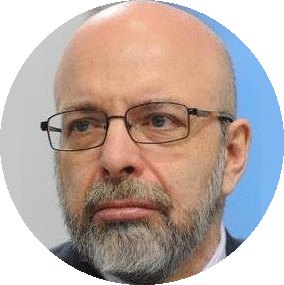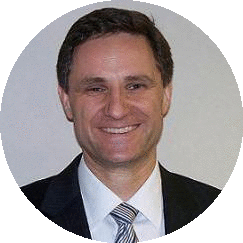Year 2008
The Baltic Forum's 13th International Conference
The EU And Russia In 2008: Looking for New Approaches
23- 24 May, 2008, Baltic Beach Hotel, Jūrmala
On May 23-24th, the Baltic Forum 2008 held its annual conference. This year's conference, titled The EU and Russia in 2008: In Search of New Approaches, addressed to the relations between the EU and Russia in the wake of the presidential elections in this country. The event continued the discussion initiated a year ago: the May 2007 Baltic Forum conference showed the possibility and necessity of a political dialogue between the EU and Russia, as well as a lack of understanding of each other's intentions and long-term interests.
Guntis Ulmanis, President of Latvia (1993 – 1999)Therefore, this year's event was focusing on the EU's and Russia's future principles and strategies vis-à-vis each other. The conference was also addressing the relations between Russia and the West in the context of global security challenges.
Conference was opened by Guntis Ulmanis, President of Latvia (1993 - 1999), Kaspars Gerhards, Latvian Minister of Economics, and Alexander Veshnyakov, Ambassador Extraordinary and Plenipotentiary of Russia in Latvia. Ainārs Šlesers, Latvian Minister of Transport, made introductory remarks on the second day of the conference.
Alexander Veshnyakov, Ambassador Extraordinary and Plenipotentiary of Russia in LatviaIn the conference participated Chairman of the Board of the Institute of Contemporary Development Igor Yurgens, Chairman of the Governing Board of the Stockholm International Peace Research Institute (SIPRI) Rolf Ekeus, Deputy DG External Relations of The European Commission Michael Webb, Director of the EU-Russia Centre Fraser Cameron, Senior Research Fellow at The Centre for European Policy Studies (CEPS) Michael Emerson, Member of the European Parliament Justas Vincas Paleckis, Chairperson of the creative center Nash Vybor Irina Khakamada, Director of the External Economical Relations Department at the Russian Ministry of Economic Development and Trade Sergey Chernyshev, Member of the Swedish Parliament Urban Ahlin, Professor of Law at the City Law School, City University, London and Research fellow at the Centre for European Policy Studies (CEPS) Alan Riley, President of The Nixon center Dmitri Simes, Researcher at the International Security Research Group (ISRG) Gerhard Mangott, Director of the Department of Economics and Investment at the Russian Ministry of Transport Juliya Zvorykina, Deputy Chairman of the Board of the Committee for Foreign Affairs at the Russian State Duma Andrey Klimov and other experts and politicians, diplomats and representatives of non-governmental organizations.
Reports:
- Rolf EKEUS, Chairman of the Governing Board, Stockholm International Peace Research Institute (SIPRI), Sweden
- Dmitri SIMES, President of The Nixon center, Member of the Board of the Baltic Forum, USA
- Michael WEBB, Deputy DG External Relations, The European Commission
- Fraser CAMERON, Director of the EU-Russia Centre, Brussels
- Michael EMERSON, Senior Research Fellow, The Centre for European Policy Studies (CEPS), Brussels
- Marko MIHKELSON, Member of the Estonian Parliament
- Urban AHLIN, Member of the Swedish Parliament
- Deniz ALTINBAŞ, European Expert, Centre for Eurasian Strategic Studies (CESS), Turkey, A Scenario: Alliance of Frustration
- Andres MÄE, Researcher, Foreign Policy Institute, Estonia, EU-Russia: energy security risks
- Ortwin HENNIG, Vice President, Conflict Prevention Program, East-West Institute, Germany
- David KRÁL, Director of the Institute for European policy Europeum, Czech Republic
- Pēteris VINĶELIS, consultant
Opinions:
 Losing Russia. The Costs of Renewed Confrontation
Losing Russia. The Costs of Renewed Confrontation
Dimitri K. Simes, President of the Nixon Center
 Russian Energy and European Security. A Transatlantic Dialogue
Russian Energy and European Security. A Transatlantic Dialogue
Paul J. Saunders, Executive Director of the Nixon Center / Photo: The Nixon CenterRussian Energy and European Security. A Transatlantic Dialogue
